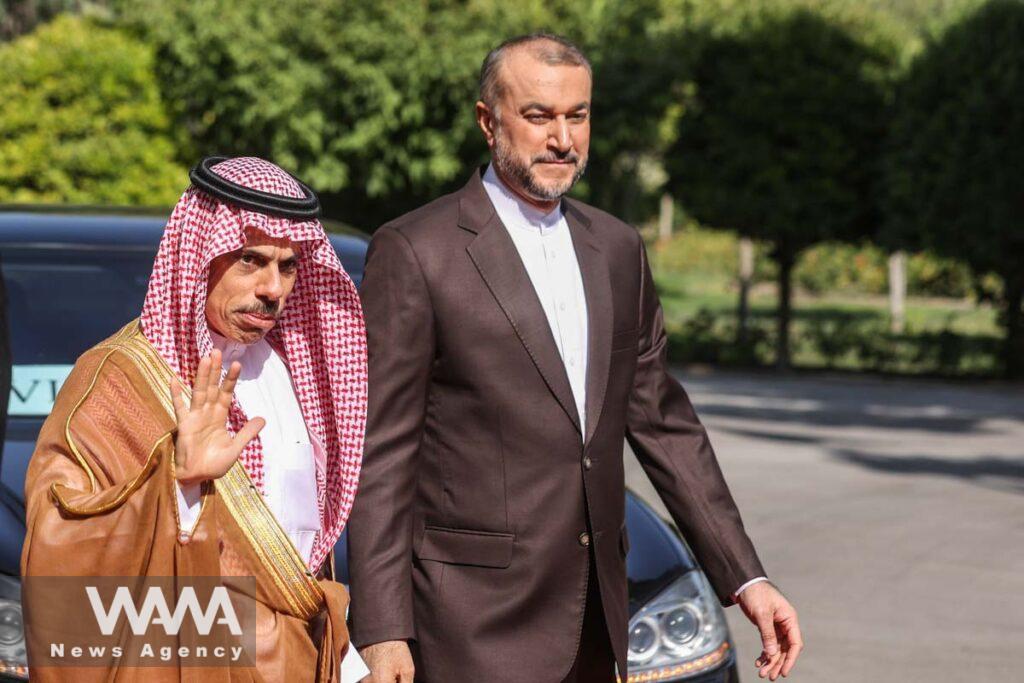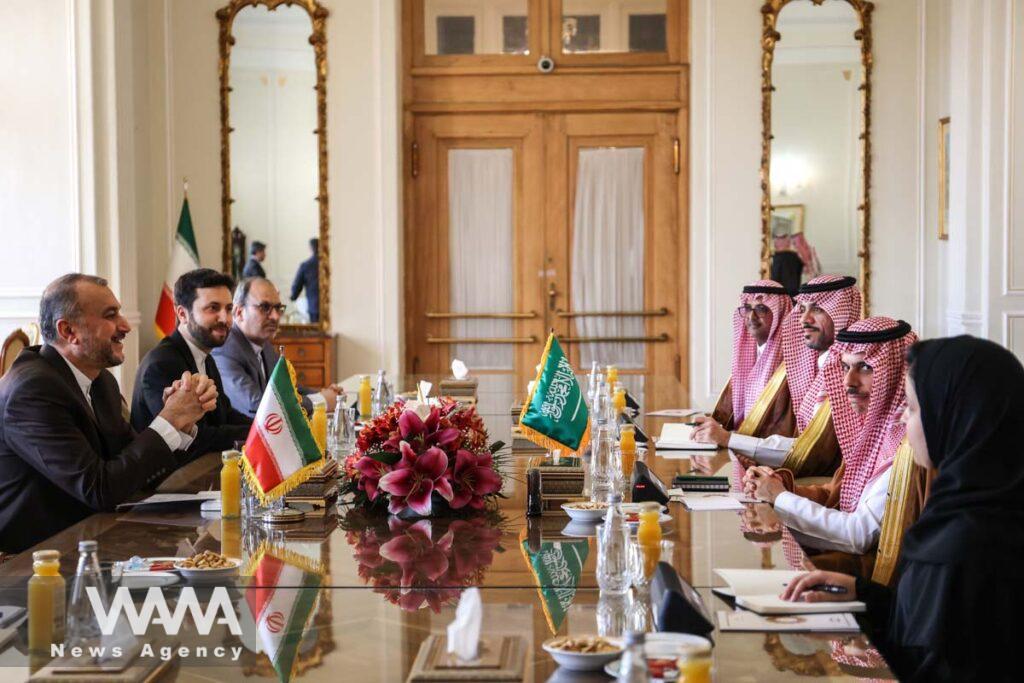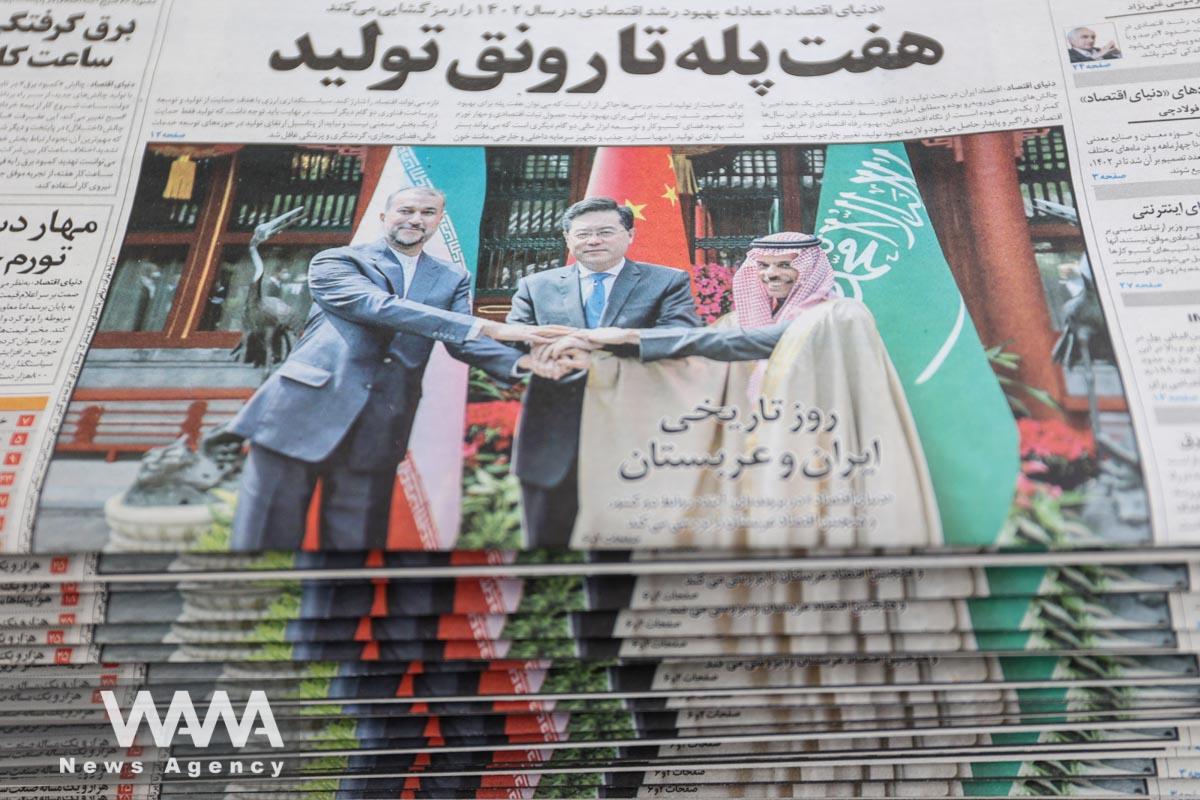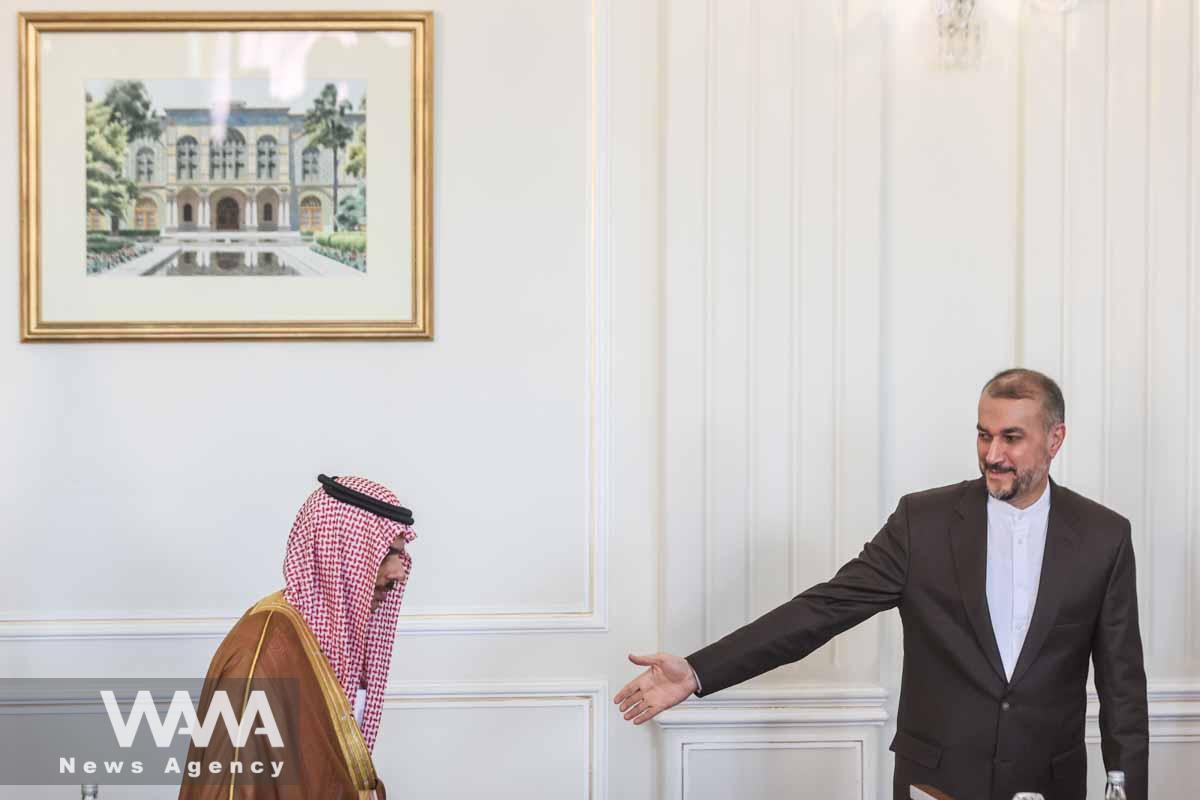The operationalization of Iran & Saudi ties
WANA (June 17) – Saudi Foreign Minister Faisal bin Farhan arrived in Tehran today. It is the first visit of a high Saudi official to Iran after seven years. Relations between Iran and Saudi Arabia have had many ups and downs in recent decades.
After the victory of the Iranian Islamic Revolution, the two countries entered into ideological competitions and geopolitical tensions. The effort to expand the sphere of influence in the West Asian region turned them into two serious rivals.
Two competitors, one of whom was against the domination and presence of the West in the region, and the other was an ally and wanted its existence. Iran, which was firmly against the presence of foreign military forces in the Persian Gulf region, was angry with Saudi Arabia for buying security from the West and weakening the Islamic world.
Saudi Arabia was in favor of maintaining the status quo. With its Salafi-Wahhabi ideology, it claimed to lead the Arab world and the Islamic world by supporting and throwing money into the world’s four corners, financing the governments opposed to Iran, and getting the support of the Western powers to protect itself.
Among the actions of Saudi Arabia in the first years of the Iranian revolution was the political and financial support of Iraq’s aggression against Iran from 1980 to 1988.
The killing of Iranian pilgrims in 1987 during the acquittal of polytheists during Hajj rituals led to more tension between the two countries. Scaring the Sunnis of the region by presenting exaggerated news and reports and incorrect information about the threats of the axis of resistance or the so-called “Shiite crescent” was another destructive action in the relations between the two countries.
Suppressing the people’s uprising in Bahrain, trying to overthrow Bashar al-Assad’s government. The attack on Yemen, supporting extremist groups such as Al-Qaeda and ISIS, has been one of the disputes between the two countries concerning the Persian Gulf region and is still a part of these confrontations.

Iranian Foreign Minister Hossein Amir-Abdollahian meets with Saudi Arabia’s Foreign Minister Prince Faisal bin Farhan Al Saud in Tehran, Iran June 17, 2023. Majid Asgaripour/WANA (West Asia News Agency)
The attack on the Saudi embassy and consulate in Iran in 2016 caused the severing of ties and brought the tension to its peak, and Saudi actions against Iran took a different form.
The role of Saudi Arabia in funding propaganda and psychological operations against Iran is undeniable. Tehran has always objected to establishing a TV channel and financial support for political experts to vilify Iran.
Now, after a long period of competition and hostility between Saudi Arabia and Iran, in which many internal and external factors have been involved in creating, with the arrangements of the parties and countries that benefit from the good relations between the two countries, the process of restoring ties between Iran and Saudi Arabia is at an astonishing speed. It has moved towards improvement, and the latest action is reopening the two countries’ embassies in the other side’s capital.

Iranian Foreign Minister Hossein Amir-Abdollahian meets with Saudi Arabia’s Foreign Minister Prince Faisal bin Farhan Al Saud in Tehran, Iran June 17, 2023. Majid Asgaripour/WANA (West Asia News Agency)
Two influential players in the Islamic, regional, and energy fields announced their desire to revise their past relations, and they are going to soon return to the point before the termination of diplomatic interactions in the past seven years.
In the joint news conference of the two foreign ministers of Iran and Saudi Arabia, which was held in Tehran, Amir Abdulhian stated that the talks between the two sides focused on the necessity of sustainable economic, commercial, and joint investment cooperation.

Turn of events in West Asian regional diplomacy
WANA (June 17) – The Saudi Arabian foreign minister, Faisal bin Farhan Al Saud, will arrive in Tehran on Saturday. The Iranian government spokesman Ali Bahadori-Jahromi has said that “measures will be taken for the reopening of the Saudi embassy” during his visit. This is the first visit of a high-ranking Saudi official in 7 […]
The issue of Palestine has always been pursued by Iran more seriously than other Islamic governments. In this meeting, Tehran emphasized this issue again.
“We agree that solving the Palestinian subject is a fundamental and priority issue in the Islamic world, and Tehran and Riyadh have the same viewpoint.” Iran’s foreign minister said.
The Saudi Foreign Minister considered the talks useful and continued diplomatic measures to improve relations. Mr. Ben Farhan cited shipping security in the seas and stressed the non-proliferation of nuclear weapons.
How long these connections will remain cordial and friendly depends on several factors. Sooner or later, this relationship will be subjected to the mischief of Israel, America, and the West. We need to observe the lessons that history will teach us in the future.
R. Ganji / Political Analyst













User comments